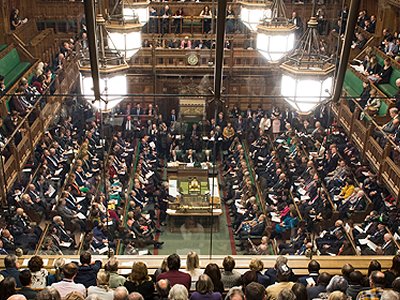
ON POLITICIANS
The Ipsos MORI Veracity Index 2018 has ranked professions according to how much the public trusts them. The good news for politicians is that they are no longer at the foot of the table (take a bow, advertising executives). The bad news is they are only one place higher and less than one in five people has trust in them.
It’s not difficult to see why. The expenses scandal continues to colour public perceptions. Those with public power can expect blame for most things that go wrong – fairly or unfairly. There has been a catastrophic loss of trust in the UK’s institutions, which should most worry us. And then there have been the long-drawn out negotiations on Brexit.
Isabel Hardman, a rising star of British political journalism, has written Why We Get the Wrong Politicians (Atlantic Books, 2018). It doesn’t much sound like a defence of politicians and their trade, but it would be difficult to find a more sympathetic analysis and as a journalist, she will have seen the worst of them. That so many MPs opened their hearts to her off the record is an indication of the esteem in which Hardman is held.
One frequently misplaced allegation aimed at MPs is that they have no idea of the problems some people live with. Though MPs are usually quite wealthy – the salary alone would account for that in most people’s eyes – they are aware of the hardships others suffer through their weekly surgeries, especially where their constituency is deprived or has elements of deprivation. Most of us never have to encounter the range and depth of problems dumped on MPs. There is often little they can do to help, but the letterhead still has cache and there is the occasional success – a sense of having made a difference to someone’s welfare.
Increasingly, the job description of a Member of Parliament resembles that of a social worker, and yet their primary obligation is to legislate fairly and consistently to ensure their constituents’ wellbeing. It is here the system breaks down, in Hardman’s opinion. Many lack the skill, time or inclination to scrutinise legislation for its effectiveness. The modern bureaucratic state is so complicated and interwoven that it is hard to interpret what kind of effect new laws have on people.
Most politicians are personally ambitious (as professionals, they are hardly alone in this) and there is great pressure from the Whips not to take too much interest in the details of Bills brought before them. Any MP looking to amend draft legislation in ways the executive disapproves of runs the risk of being overlooked for promotion. The sadness is that many bad pieces of legislation only come to light in the MP’s surgery as their effects work out in practice in the hapless lives of the most vulnerable. More attention to the task of scrutinising legislation is called for.
Isabel Hardman takes the reader through the chronology of finding a seat to contest, fighting an election, starting as a rookie MP and developing a career. It is the prohibitive cost of standing for Parliament which impresses most. A cool £35,000 is usually needed to fight and win a seat. How many people have this kind of money set aside to blow in a potentially unsuccessful bid? Of all the answers to the book’s title (Why We Get the Wrong Politicians), this is the most compelling. Running surgeries expose MPs to the worst of human circumstances, but many still have enough wealth to preserve their households from the experience of being poor. If empathy is also lacking – and it sometimes is – then there is a troubling disconnect between MP and constituent.
Attention on the workings of our own Parliament has waned. Unless there are rifts, scandals and vendettas to assess, most people ignore it. We are disengaged from the wider political process and our political parties are not strong. The belligerence of the debate round the EU has been striking – alarming, really. Yet there is little sense that people feel as strongly about the life of the Parliament that will take on more responsibility in the years to come.
If we cannot give Parliament the attention it deserves, have the shared attention span needed to reform some of its practices and make standing for it accessible for all, its reputation will continue to fall. If this isn’t a public Christian cause, what is?
POPULAR ARTICLES

Obama's Covert Wars
The use of drones is going to change warfare out of all recognition in the next decades.

Through A Glass Starkly
Images of traumatic incidents caught on mobile phone can be put to remarkable effect.

What Are British Values?
Is there a British identity and if so, what has shaped the values and institutions that form it?


